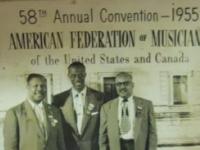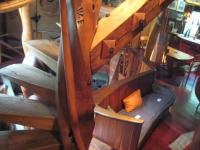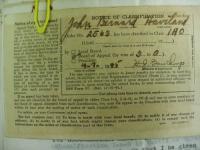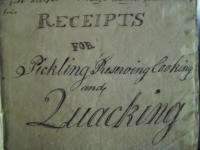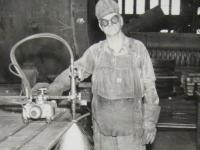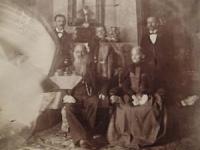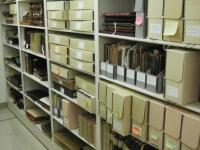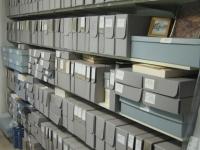Archival Adventures in Small Repositories
Archival Adventures in Small Repositories
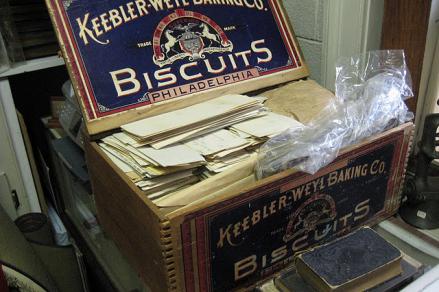
The Clef Club was the city’s preeminent African American musical institution from 1935 to 1971, a time period that coincided with the golden age of Philly jazz. With such illustrious members as Dizzy Gillespie, John Coltrane, Benny Golson, the Heath Brothers, Jimmy Smith, Grover Washington, and others, the Clef Club’s archives are an invaluable historical resource documenting Philadelphia’s world-famous jazz tradition.
It's not every day that archivists get to work in a uniquely-designed home with an interior covered in multiple types of artwork from floor to ceiling. It is the case, though, if you're working at the Wharton Esherick Museum--one of the coolest places I've ever visited! (I'm so glad that the museum decided to participate in our project!)
Once or twice, upon forgetting to do homework in grade school, I considered telling my teacher that I conscientiously objected to the assignment. It sounds a lot better than "The dog ate my homework." But if I was a student at Westtown School, with its storied Quaker heritage, and my teacher actually had been a Conscientious Objector during World War II, I would definitely stick with the "dog ate it" excuse.
There has been a lot of excitement around our office as we participated into two history community events this week, National History Day Philly 2014 kick-off and History in Pennsylvania Awards 2013.
Up until the end of the 20th century, Chester County, Pa. could have been referred to as the "land of iron and steel" due to the large number of metal-producing forges, mills, and factories that towered over the landscape.
Feeling a little under the weather lately? Stop eating ice cream cones! According to a 1920 letter by one Mary Stout Martin, they lead to sickness. This and many more healthy eating tips are preserved in the archives at Stenton.
According to local legend, Lewis Wernwag, owner of a Phoenixville nail works mill, named the mill Phoenix Iron Company because the fiery red hot iron reminded him of the Phoenix (the mythical bird that dies and then rises from its own ashes). Shortly thereafter, what was once the small village of Manavon in Chester County, Pa., began to be referred to as Phoenixville.
Now that it's October, my mind is on Halloween. Especially since our recent visit to Historic Sugartown uncovered some exemplars of eerie Victorian-era practices, namely a post-mortem daguerreotype and a hair album!
October is nearly upon us again, but that's no reason to fear ghosts, ghouls, or acidic non-archival folders. Forget Halloween, this October is all about Archives Month Philly!
- ‹ previous
- 10 of 21
- next ›
Image Permissions
Unless otherwise noted, all images in this blog post are property of the organization profiled, not the Historical Society of Pennsylvania. To reproduce any image or obtain a higher quality version, please contact the organization directly.

